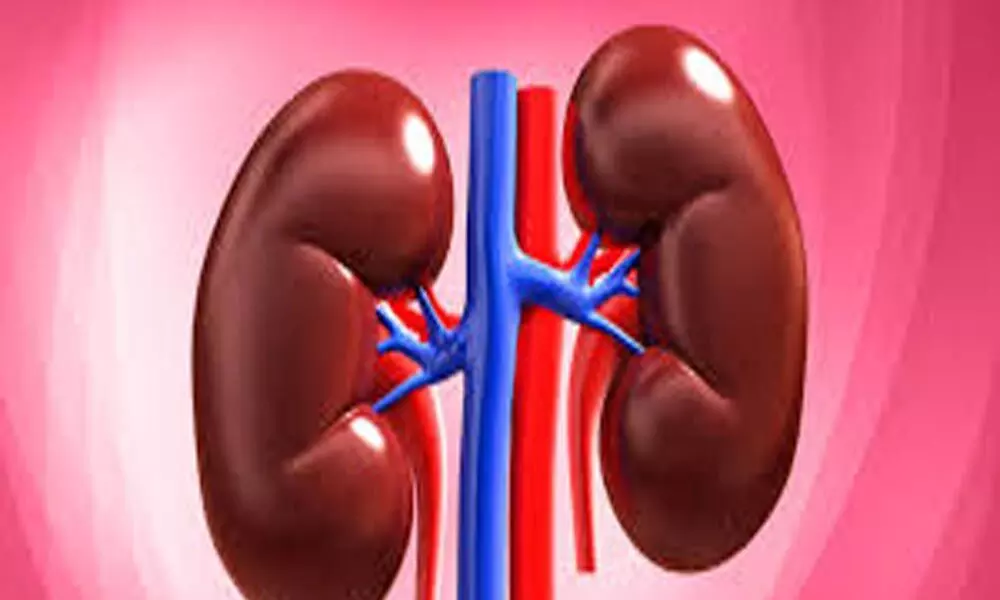Kidney Function Test-Know your Kidney's Health

Kidney
Many people in the beginning stage of kidney disease do not show any symptoms, hence it becomes all the more important to get tested and know your kidney health.
Many people in the beginning stage of kidney disease do not show any symptoms, hence it becomes all the more important to get tested and know your kidney health.
1. Who should get tested?
Healthcare providers recommend these people get tested for kidney disease
• People who are at high risk of getting kidney disease
• Anyone having diabetes in the age group of 12 to 70 years must undergo tests at least once a year.
• Children who have been diagnosed with type 1 diabetes must get screened for kidney disease before completion of 5 years of their diagnosis. And children diagnosed with type 2 diabetes must be screened immediately after their diagnosis. In both the cases, they must be screened for kidney disease every year.
• There exists not much need, that everyone must get tested if they do not have symptoms or no risk factors.
2. General test for kidney function and disease
Renal panel: Usually a group of test is performed to evaluate the kidney function/diagnose/monitor/screen for kidney disease. While these tests vary from one laboratory to another, generally these tests are performed.
• Creatinine
• Electrolytes
• Urea
• Phosphorus
• Calcium
• Albumin
• Glucose
• The calculated values may include Creatinine ratio/ urea (BUN) eGFR and anion gap.
3. Few selective tests may be undertaken instead of group of test
Serum Creatinine test –Selective test
The above test examines as to whether creatinine is built up in your blood. Normally, kidneys completely filter creatinine from the blood. If your creatinine levels are high, its reveals impaired kidney function.
Creatinine levels
For women: Creatinine level is higher than 1.2 milligram/deciliter (mg/dl)
Men: Creatinine level is higher than 1.4 milligram/deciliter (mg/dl)
4. Blood Urea Nitrogen(BUN)-selective test
The Blood Urea Nitrogen (BUN) is another test which helps to check waste products in your blood. The above tests also measures nitrogen in the blood. The urea nitrogen is a breakdown product of protein.
One must remember not all elevated BUN test indicate kidney damage. If an individual takes common medications such as few types of antibiotics or large dose of aspirin, it can increase your BUN. While visiting your doctor, you must tell about your medications and supplements which you take regularly. You may require to stop specific drugs for a few days before you undertake the above test.
Normally the BUN level should be in the range of 7 and 20mg/dl. If it is higher, it might indicate numerous health problems.
5. Estimated GFR-selective test
The above test helps in estimating as to how well your kidneys are filtering the waste. This test helps determine by looking at varying factors such as test results specially the creatinine levels, age, gender, race, height, weight. If the result is lower than 60 milliliters/minute/1.73m2, it could be warning sign of kidney disease.
6. How these tests are performed?
Kidney function usually requires two tests- blood test and 24 hour urine sample test
Blood test
Serum creatinine and BUN test require blood samples to be taken to lab or you may require to personally visit the lab. The technician draws the blood by tying an elastic band around the individual's upper arm who wishes to get tested. By doing so, veins stand out, then the technician cleans an area over the vein and then they slip hollow needle into the vein. In the test tube, the blood will flow back and it will be sent for analysis.
24 hour urine sample
The above test is creatinine clearance test; it offers your doctor an idea as to how much creatinine your body expels in a single day. In the morning urinate normally in the toilet and for the rest of the day and even during the night, urinate into the specific container having a label as to what it is for, tell your family member about the test. Keep the container in a cool place and next day morning urinate in the same container, this completes the 24 hour urine sample. You must follow the instruction of the laboratory or doctor as to where to drop off the samples.
7. How to know whether your treatment is working?
One can know by these two indications
• GFT remains the same
• Urine albumin remains the same or goes down
You can always follow the advice of your healthcare provider and manage your kidney disease.
8. What are the points you need to discuss during the annual checkup?
Given below are some of the points which you can discuss with your doctor during annual checkup. They include
• Tell about your diet, alcohol and tobacco consumption, medications or supplements you take, physical exercise and activities you perform every day.
• Discuss also about lifestyle and share your complete health history
• You also need to share your medical condition and any family history of kidney failure
9. Medical tests your Doctor might discuss during checkup
Doctors may discuss about these tests during the annual checkup, if you are at risk of getting kidney disease.
• ACR (Albumin-to-creatinine ratio) : If your kidneys are not working well, then protein gets built up in the urine. This test helps detect the amount of protein, it is an early sign of kidney damage.
• eGFR (Estimated Glomerular Filtration Rate): This test helps in measuring as to how well the kidneys are able to filter waste from your blood.
• Blood test: High blood pressure is one of the leading cause for kidney disease.
• Blood glucose: This test checks for diabetes, it is also another leading cause for kidney failure
• Cholesterol: High cholesterol might indicate risk for heart disease; it is a major risk factor for kidney disease.










